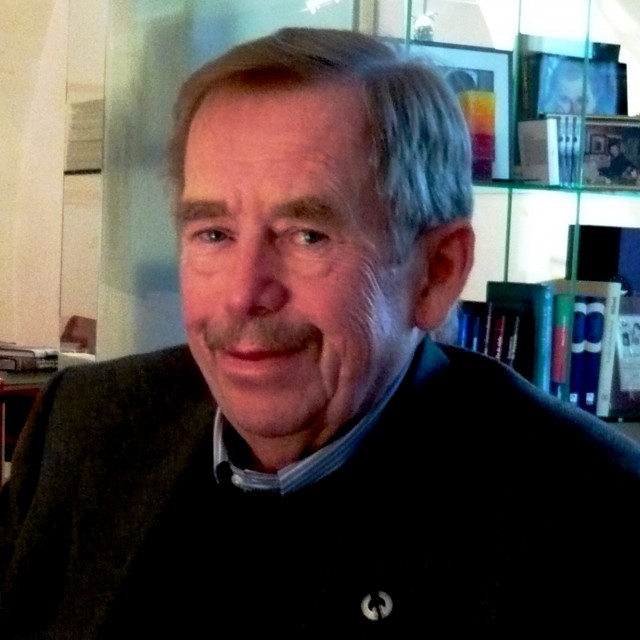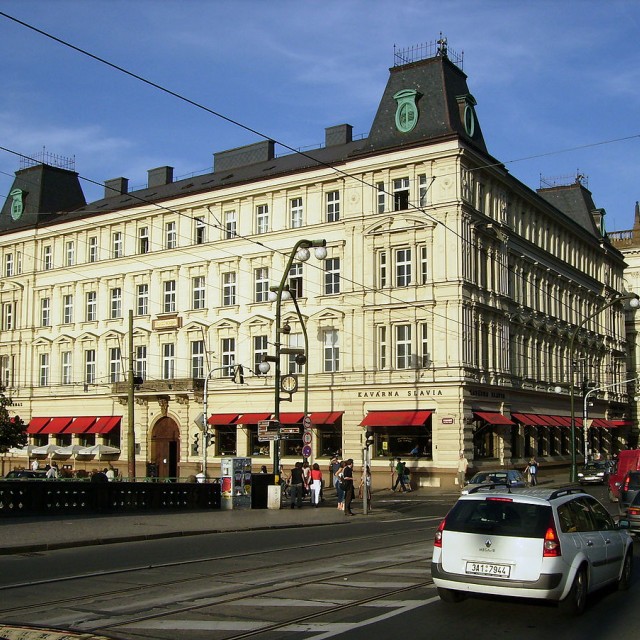
Václav Havel
Václav Havel was born in Prague on 5 October 1936 to Václav and Božena Havels. The family owned the Lucerna palace and the Barrandov Terraces; his bohemian uncle Miloš founded the Barrandov film studios. He was interested in arts and public developments since childhood, and was a Boy Scout (nickname ‘Dorbeetle’). The family’s property was confiscated after 1948. Due to his ‘bourgeois’ origins, the communists would not let Havel to study a high school so he studied a vocational school to become a lab worker and then completed an evening high school with a graduation exam in 1954. He then applied for arts studies at a university to no avail; in the meantime, he enrolled as a student of the Faculty of Economics of the Czech Technical University between 1955 and 1957. Havel’s first forays into art are associated with the literary circle known as 36ers (Šestatřicátníci) which operated independently of the official cultural milieu of the period from the very beginning. Having completed his compulsory military service, he started working as a stagehand and went on to become an author and the in-house playwright of the Na zábradlí Theatre as well as one of the best-known and most staged Czechoslovak playwrights abroad. He married his long-term partner Olga Šplíchalová in 1964. Havel’s critical speech at the IV. Congress of the Union of Czech Writers in 1967 presaged his involvement during the Prague Spring. His plays were forbidden after 1968 and Václav Havel retreated. A brief career as a worker in the Trutnov brewery provided the topic for his famous play Audience. The Declaration of Charter 77 was a breakthrough feat superseding the isolated anti-regime activities. Václav Havel was one of the authors of the declaration and became one of the first three Charter 77 spokesmen. By then, the StB had been monitoring Václav Havel for some time. Charter 77 meant his first prolonged imprisonment; he spent five months in detention and was sentenced to 14 months suspended sentence for impairing the nation’s interests abroad in 1977. His longest, three-year imprisonment was for his activities at the helm of the Committee for the Defense of the Unjustly Prosecuted (VONS) between 1979 and 1982. In December 1988 he was able to legally speak at the first permitted opposition demonstration in the normalisation period held at Škroupovo Square in Prague, but less than a month after he was arrested in connection with the demonstrations during what is referred to as the Palach Week. The escalating pressure of both international and domestic public contributed to his premature release. He participated in the Several Sentences appeal in June 1989. Two days after the brutal suppression of the permitted student demonstration of 17 November 1989, he co-founded the Civic Forum and became the informal leader of the Velvet Revolution. On 29 December 1989, Václav Havel hall was elected the President of what was the Czechoslovak Socialist Republic at the time in the Vladislav Hall of the Prague Castle. He was elected the president of the Czech Republic three times after the split of Czechoslovakia. His term of office ended after 13 years in 2003. Václav Havel died on 18 December 2011.



